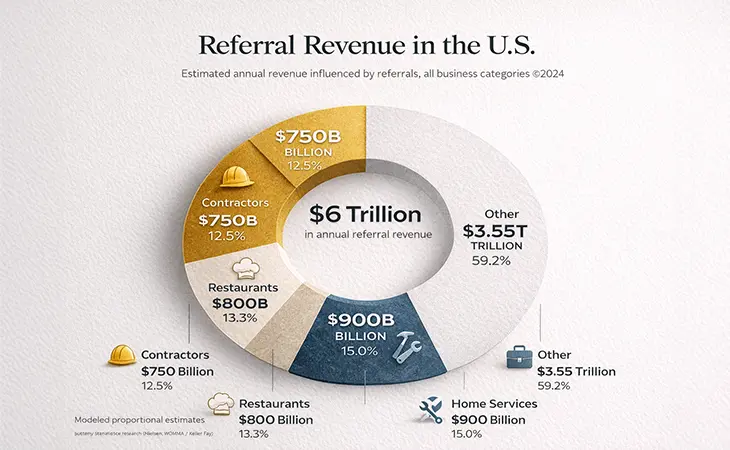In the digital age, the importance of Search Engine Optimization (SEO) cannot be overstated. Every business, whether small or large, must navigate the intricate landscape of online visibility to thrive. One of the most common questions is DIY SEO vs hire a pro, should you try to handle SEO yourself or bring in an expert? This article explores the benefits and challenges of both approaches, offering insights to help you determine the best path for your business.
Before you decide whether to DIY or hire a pro, it helps to understand the long-term benefits of doing SEO right. Check out our post on The Benefits of SEO for Your Business to see what kind of growth it can drive when done well.
Evaluating DIY SEO: Benefits and Challenges for Businesses
Key Advantages of DIY SEO for Your Organization
A Cost-Effective Approach
Embarking on a DIY SEO journey can significantly reduce expenses. For startups and small businesses, every dollar counts. Investing in SEO tools and resources can yield long-term benefits without the hefty price tag of hiring a professional. For instance, many online platforms offer affordable courses and tools, allowing business owners to learn the ropes of SEO without breaking the bank. Imagine a local cafe owner mastering SEO tactics to attract customers, ultimately increasing foot traffic and sales.
Complete Control Over Strategy
One of the most appealing aspects of DIY SEO is the complete control it affords business owners. You can tailor your strategy to align with your unique brand voice and business objectives. This autonomy enables you to pivot quickly in response to market changes or customer feedback. For example, a boutique owner might adjust her SEO strategy to emphasize seasonal products or local events, ensuring her shop remains relevant in the competitive landscape.
Flexibility in Implementation
DIY SEO allows for flexible implementation, accommodating the ever-changing nature of digital marketing. Unlike hiring a professional who may have a fixed schedule, you can prioritize tasks based on immediate needs. This adaptability is crucial for businesses that experience fluctuating demands or seasonal trends. Take, for instance, an e-commerce store that can ramp up its SEO efforts before a major sale, optimizing product pages and blog content in real-time.
Opportunity for Skill Development
Engaging in DIY SEO is not just about enhancing your website’s visibility; it also fosters personal and professional growth. The learning curve can be steep, but mastering SEO principles can empower you in other areas of your business. For example, a marketing manager at a tech startup started learning SEO to improve their website’s ranking. Over time, they became an invaluable asset, driving organic traffic and boosting conversions.
Building a Stronger Connection with Your Audience
Managing your own SEO provides a deeper connection to your audience. As you conduct keyword research and analyze user behavior, you gain insights into customer preferences and pain points. This knowledge can inform not only your SEO strategy but also your product development and customer service initiatives. An organic skincare brand, for example, might discover that consumers frequently search for natural ingredients, prompting the company to highlight these components in their content and marketing campaigns.
Community Engagement and Networking
As you dive into DIY SEO, you may find yourself engaging with a community of like-minded individuals. Joining forums or attending webinars can foster a collaborative spirit, providing you with insights and support from fellow business owners. This networking opportunity can lead to partnerships and collaborations that further enhance your brand’s visibility, such as co-hosting an event with another local business to attract a broader audience.
Drawbacks of DIY SEO: Potential Pitfalls to Consider
Time-Intensive Process
While DIY SEO may appear cost-effective, it often consumes significant time and resources. Business owners juggling multiple responsibilities may struggle to dedicate the necessary hours to research, implement, and track SEO strategies. Take, for example, a freelance graphic designer who attempted to optimize her website alongside client work. She quickly found the demands of SEO overwhelming, resulting in a lack of focus and ineffective efforts.
Limited Expertise in Optimization
Without a background in SEO, many business owners might struggle to grasp the intricacies of keyword research, on-page optimization, and backlink strategies. This lack of expertise can lead to missed opportunities and suboptimal results. For instance, a local restaurant might fail to utilize local SEO tactics, such as optimizing their Google My Business listing, losing potential customers searching for dining options in their area.
Risk of Ineffective Strategies
The world of SEO is ever-evolving, and what worked yesterday may not yield results today. DIY practitioners may inadvertently implement ineffective strategies based on outdated or incorrect information. A small online retail business might rely on a popular SEO blog’s advice from years ago, only to realize too late that their tactics are no longer relevant, resulting in diminished web traffic and sales.
Difficulty in Staying Updated on Trends
SEO best practices can change rapidly, making it challenging for DIY practitioners to stay informed. Google frequently updates its algorithms, and what was once effective might become obsolete overnight. A small travel agency might struggle to adapt to the latest trends in mobile optimization or voice search, ultimately falling behind competitors who have embraced these changes.
Overwhelming Amount of Information
The vast array of resources available for DIY SEO can sometimes be overwhelming. Business owners may find themselves inundated with conflicting advice from blogs, forums, and videos, leading to confusion and frustration. For instance, an aspiring influencer trying to build her brand struggled with conflicting information on social media SEO, causing her to waste time on strategies that did not align with her goals.
Potential for Burnout
The combination of time commitment, learning curve, and constant need for adaptation can lead to burnout for DIY SEO practitioners. Business owners may find themselves overwhelmed and demotivated as they juggle SEO responsibilities alongside running their businesses. A fitness studio owner, for example, may initially be excited about optimizing their website but could quickly become disillusioned and neglect their SEO efforts altogether due to the pressures of managing classes and client relations.

Final Thoughts
Choosing between DIY SEO vs hire a pro isn’t always a simple decision. It comes down to your budget, time, technical comfort, and how fast you want to see results. While doing it yourself can save money upfront, it often requires a steep learning curve and a serious time commitment. Hiring a professional, on the other hand, gives you access to proven strategies, faster execution, and long-term scalability.
Ultimately, the right choice is the one that aligns with your business goals, resources, and growth timeline. Whether you’re optimizing a single-page site or scaling an entire digital presence, investing in SEO , one way or another – is a move no business can afford to ignore.
Further Reading
Want to explore more? These articles dive deeper into small business SEO, website performance, and what actually drives growth in 2025:
- Rocket Web Designer – 10 Tips on How to Save Money on Web Design
- Moz – DIY vs Hiring an SEO: Which One’s Right for You?
- Search Engine Journal – SEO Consultant vs Agency vs DIY: Which Is Best for Your Business?
Have any questions?
Web Design Services
We are to help answer any questions you might have regarding web design & marketing.




